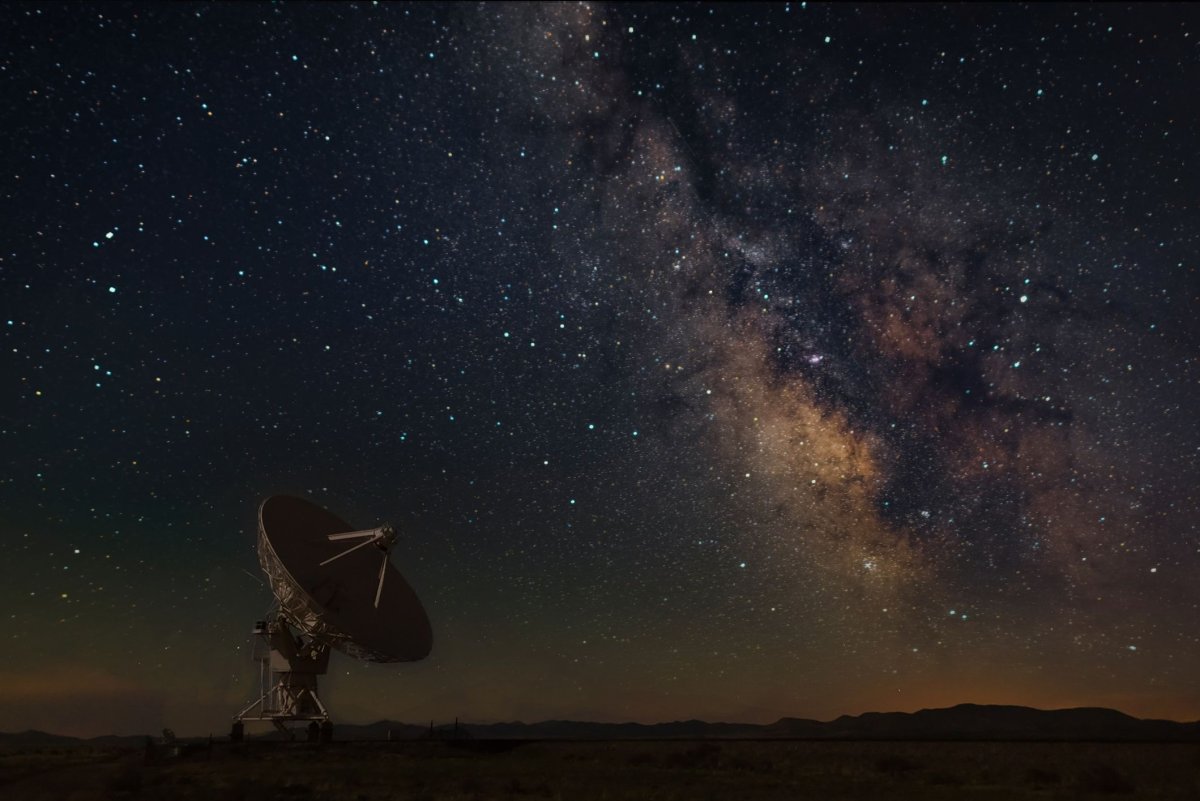NASA is on the hunt for advanced alien civilizations and has announced a new plan to find them: technosignatures.
These are signs of technology coming from elsewhere in the galaxy. As a species, we have been emitting various signals into space since the first radio broadcast over 100 years ago. If any advanced civilization out there stumbled upon these signals, it would indicate our presence in the universe—so it stands to reason that a good way to search for signs of intelligent life would be looking for markers of its technology.
In the Milky Way, up to 40 billion Earth-sized planets are estimated to be sitting within the habitable zone (where it would be not too hot or cold for liquid water to exist), and the Milky Way is one of 100 billion galaxies in the universe. This makes it difficult to imagine that Earth is the only planet where intelligent life has evolved. But finding it poses huge problems—problems that NASA is now hoping to solve.
With the backing of Congress, the space agency is about to hold a workshop on the topic to establish the "most promising avenues of research" for finding advanced alien life-forms. This will help it direct investment in the future, as well as working out how best to partner with private companies for any endeavors.

Technosignatures would generally come in the form of communication signals—radio or laser emissions, for example. In recent years, a few tantalizing discoveries have sparked excitement. One example is the discovery of fast radio bursts—radio signals coming from deep space, origin unknown. This got even more exciting when one of these signals was found to be repeating.
Another is the mystery star KIC 8462852, also known as the "alien megastructure" star. Observations showed bizarre dips in the star's brightness, indicating something huge was passing in front of it. One suggestion was that an otherworldly civilization had built a huge structure to harness energy from it.
Scientists are almost certain aliens are not behind either of these cases, but the excitement they generated shows the public appetite for the possibilities they offer.

With the renewed efforts to search for intelligent alien life, NASA hopes to search the skies for anomalies like KIC 8462852. "Scientists caution that we will need more than an unexplained signal to definitively prove the existence of technological life. For example, there can be a lot of radio frequency interference from Earth-based sources," the space agency said in a statement.
"Although we have yet to find signs of extraterrestrial life, NASA is amplifying exploring the solar system and beyond to help humanity answer whether we are alone in the universe," the statement continued. "From studying water on Mars, probing promising 'oceans worlds,' such as Europa or Saturn's moon Enceladus, to looking for biosignatures in the atmospheres of exoplanets, NASA's science missions are working together with a goal to find unmistakable signs of life beyond Earth. And perhaps that life could indeed be more technologically advanced than our own."
Following the NASA workshop, a number of speakers will be answering questions via a Reddit AMA starting at 1 p.m. EDT.
Uncommon Knowledge
Newsweek is committed to challenging conventional wisdom and finding connections in the search for common ground.
Newsweek is committed to challenging conventional wisdom and finding connections in the search for common ground.
About the writer
Hannah Osborne is Nesweek's Science Editor, based in London, UK. Hannah joined Newsweek in 2017 from IBTimes UK. She is ... Read more
To read how Newsweek uses AI as a newsroom tool, Click here.








